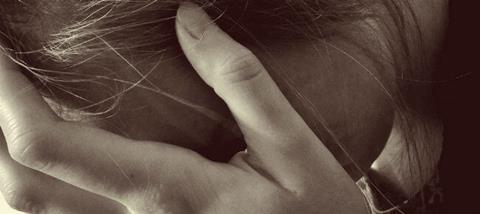
Dear Maggie
At the age of 16 I was suffering with depression. Things got so bad I tried to OD on my anti depressants but I was suddenly filled with fear so I went to my church youth worker, I passed out just after I arrived. The next thing I remember is waking up with him touching me. He told me that if I ever told anyone what he had done then he would tell my family about my OD. He then raped me. I tried to avoid him from then on but he managed to find ways to get me on my own and he did it again a number of times.
Sixteen years on, I can’t talk to people about it, though my husband knows it all. The problem is that I hate sleeping with him, it only makes me think of negative things. I can’t escape the thoughts of losing weight and selfharm when I feel down or not in control. These three things rule my life.
You have gone through a terrible ordeal and it is no wonder that it is affecting you today. But this does not have to be the end of the story. The damage he has done can be unpicked and there is freedom the other side of rape.
Maybe the first steps to learn to take will be to unpick his strategy of silencing you. You have already begun this by telling your husband and by writing to the magazine. Silencing you to secrecy was only ever for his benefit, not yours. Finding the right people with whom to offload all you are carrying is going to be key. Often the best way is to find a confidential specialist service. To search for one local to you, log on to www.dabsbooks.co.uk or www.thesurvivorstrust.org. In addition, you could use a specialist helpline like Lifecentre: 0844 847 7879 for adults, 0808 802 0808 for under 18s, 07717 989 022 if you prefer to text, or help@lifecentre.uk.com if you prefer to email.
Self-harm is a coping strategy, to help you survive and a way to release the huge inner pain that you don’t have other ways of expressing. It is a form of expression without words; you were told to stay silent. It can also be a way of seeking to feel the control over your body that you were so maliciously denied by this youth worker. Be honest with yourself as to what the self harming gives you and what feelings it is usually responding to. Your aim is to develop a wider, more healthy repertoire of coping strategies and a means of expressing your inner conflicts and pain. Think through ideas of how else you might be able to express and respond to these feelings. Tell someone how you feel; if you can’t, try voicing it out loud, even if it is only to yourself.
Understand that a huge amount of this is about you needing to regain a sense of control over your own body, because that is what was taken from you. You can gain it back. Your body is now yours again. Every cell of your skin from those days has now gone and been replaced with new ones. You don’t need to prove you have control through monitoring your eating or self-harming; you need to live in the control you have in the present. This is where trauma counselling will help you make that shift from past to present.
There may also be steps to be taken in regard to letting go of the hatred you are expressing towards your body. Your body did not betray you, it was not your fault, it is not your shame: it is his. There will come a time to relinquish all this off yourself and put the blame and shame onto him. When it is safe to express anger against him, it will be releasing and healing. God is infinitely angry too and will stand with you in your anger; just let him take over when it comes to judgment.
The other important aspects of judgment is to use the law. It may or may not be possible for the police to put together enough evidence to take this man to court, but it is important to consider reporting what he did for the sake of protecting others.
I would encourage you to share with your partner that sex is going to be triggering all the trauma you have suffered until you can get that trauma processed. With specialist help you can do this and separate out making love from abusive sex.
I would recommend a book by Carolyn Ainscough and Kay Toon called Breaking free: help for survivors of child sexual abuse (New edition, Sheldon Press). I want to offer you hope; better days can come if you keep taking one small step after another to process all you have suffered and choose freedom.



























